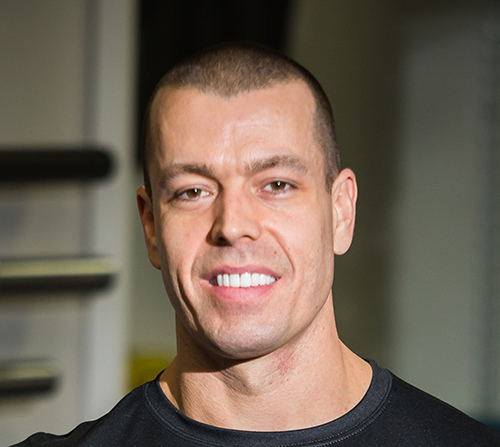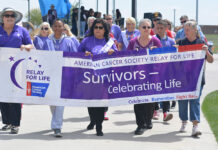By Aaron Gilbert
It’s a fact – we all get sick. But it’s not easy knowing what to do about it. Is exercise, or rest, the best medicine? Let’s find out.
Immunity
When we are faced with a foreign attack, our immune system works hard to defend us.
• Innate Immunity (natural immunity)
• Physical Structural barriers (like mucous lining in nasal passages)
• Chemical barriers (like our stomach acids)
• Protective cells (NK cells – white blood cells that can destroy harmful invaders)
• Adaptive Immunity (acquired immunity)
Acquired immune response is the reason for vaccination. Subject your body to a tiny dose of a pathogen, and it will know what to do when confronted with a bigger dose.
Upper Respiratory Tract Infections
Every day, bacteria, viruses, fungi and parasites infiltrate us. It’s a germ nightmare out there. And the most common invaders cause colds, sinusitis, middle ear infections, influenza, coughs, tonsillitis and throat infections.
How Exercise Affects the Immune System
One Time Exercises:
• Moderate Intensity Exercise Session (20-60 minutes) – Can boost Immunity
• Prolonged Vigorous Exercise Session (2 or more hours) – Depresses the adaptive immune system.
Chronic Exercises:
• Resistance Training – stimulates innate immunity
• Moderate Exercise – strengthens adaptive immunity
Other Factors Affecting Immunity
Stress – It’s a big factor that affects the immune system. Adding the stress of prolonged vigorous exercise to a weakened immune system will simply overload it.
Age – Our innate immune response can break down as we get older. But staying physically active and eating a nutritious diet can reverse many of these changes.
Sleep – Poor sleep quality and/or prolonged sleep deprivation jeopardizes immune function.
Training Age – A higher level of fitness is protective as it may limit the stress response to exercise.
What You Should Do
If you feel healthy and simply want to prevent getting sick, stay moderately active most days of the week. If you participate in high-intensity workouts, make sure you’re getting enough rest and recovery time. Manage extreme stress levels, get plenty of sleep and wash your hands.
If you are already feeling sick, let your symptoms be your guide. Consider all the stress you are managing in your life (e.g. psychological, environmental).
With a cold/sore throat (no fever or body aches/pains), easy exercise is likely fine as tolerated [e.g. low heart-rate “cardio” (100-150 bpm) during the first few days of sickness, such as 20-30 minutes of walking]. You probably don’t want to do anything vigorous, no matter how long the duration.
If you have a systemic illness with fever, elevated heart rate, fatigue, vomiting, diarrhea, muscle and joint pain/weakness, and enlarged lymph nodes, get some rest! If you have a serious virus and you exercise, it can cause problems.
Aaron Gilbert, CSCS, is the owner of Longevity Athletics.
520-261-4661
[email protected]
This column appears in the August issue of InMaricopa.

















![Elena Trails releases home renderings An image of one of 56 elevation renderings submitted to Maricopa's planning department for the Elena Trails subdivison. The developer plans to construct 14 different floor plans, with four elevation styles per plan. [City of Maricopa]](https://www.inmaricopa.com/wp-content/uploads/2024/04/city-041724-elena-trails-rendering-100x70.jpg)
